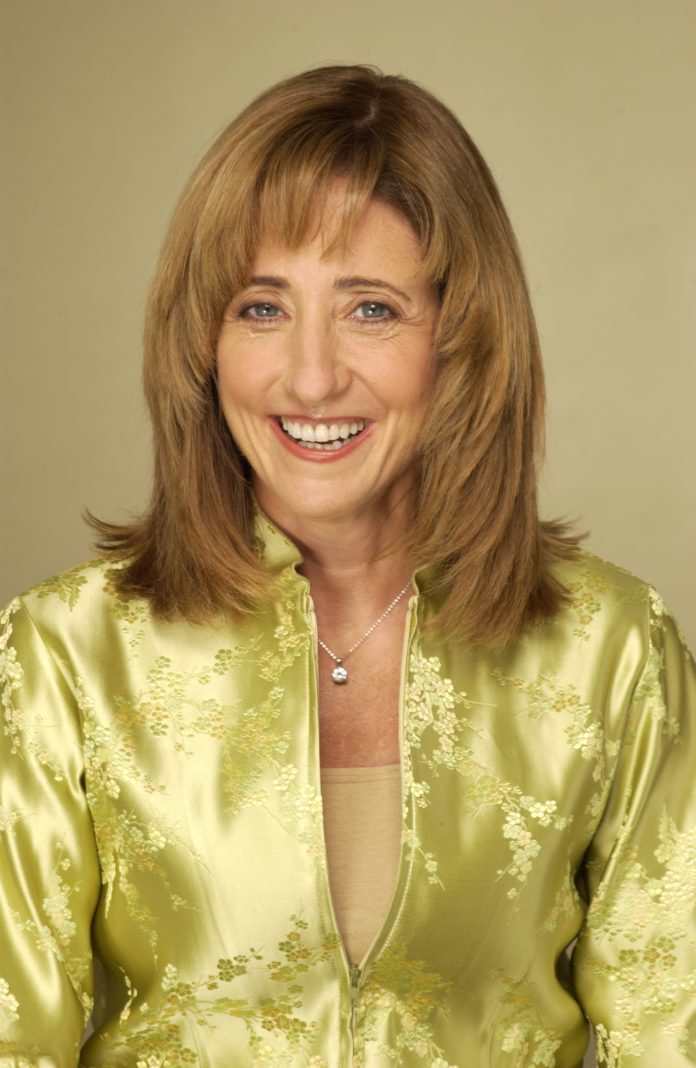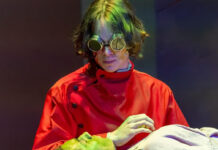
Musician Blair Tindall, 58, fell in love with the oboe at a young age. After attending the North Carolina School of the Arts, she went on to study music at the Manhattan School of Music in New York and was a substitute oboist with the New York Philharmonic. Tindall then attended Stanford University, where she studied journalism and decided to write a memoir titled Mozart in the Jungle: Sex, Drugs, and Classical Music. In 2014, Amazon created a show, Mozart in the Jungle, based on Tindall’s memoir. But how did Tindall get her start in classical music? It all began at Estes Hills Elementary right here in Chapel Hill. Proconian interviewed Tindall about her experience as a musician and writer.
What encouraged you to get involved with classical music?
I was at Estes Hills Elementary School in the sixth grade, and they lined us all up for band class, and remember this is at a time when we were only recently integrated racially, so not everybody could afford to rent an instrument, but I was one lucky enough who could. My name was at the end of the alphabet, so I ended up with the oboe because that’s what was left.
What encouraged you to make the switch from classical music to studying journalism?
Terror. I had been very successful in New York, and I had a feeling I could go on a bit, but there’s agism in everything. I haven’t really experienced that much sexism in classical music, but, as you get older, sometimes it does become more difficult to make a living [in classical music]. So I thought, “Why not add onto it with something else?” I ended up going to Stanford. It was a long journey to get there because I didn’t have any academics behind me.
How did you stay close to your roots of classical music when you began studying journalism?
The whole time I was at Stanford, and after, I was playing at the San Francisco Symphony. I never stopped playing. I have this oboe group that’s about to play some concerts in New York called Oboe Fusion.
What encouraged you to write your memoir?
An essay from the first week of classes at Stanford. We were asked to write a thousand-word essay on something that had affected us emotionally, so I wrote about the recent death of my pianist friend Sam Sanders. I read it aloud—and remember I’m 13 years older than everybody else—and everybody was silent and I thought, “Oh, my god. I just gave up a $90,000 job in New York,” and finally somebody said, “You have to write a book about this. Nobody knows.” So I went back to New York, and I was offered a job on Broadway again, and I eventually just got to the point where I was like, “I know this is going to have an impact on my music career, but I think it’s time.”
How was your memoir received by the classical music community in general?
Absolutely horribly. They all wanted to rip me limb from limb. I think people didn’t read it—actually I know very few people who actually read it. They thought it was some salacious tell-all, but it was actually a book about the rise of culture in late 20th century America. So it was strange because I really didn’t think it was that sexy or salacious in any way; I think that’s what people were just thinking. A lot more people have read it now, and now that people watch the TV show they get a kick out of it.
What parallels do you see between the Amazon show Mozart in the Jungle and your experience as an oboist?
They took a lot of scenes and characters directly from the book and even named them the same. The Hailey character looks exactly like I did when I was her age. Of course, people always complain and nitpick about little things, but TV is different from real life. It’s entertainment, not a documentary, so you have to realize that, in order to make something entertainment, you have to squeeze five years of somebody’s life into three-and-a-half seconds. And so, you could say “associate principal cellist” and then explain that, or you could say “second cellist” and that would explain it, too. The big thing that’s in the show that’s not in the book is the conductor dialogue between Gael Garcia Bernal and Malcolm McDowell. The whole selling point of the show was to get Gael because he resembled the conductor at the L.A. Philharmonic who’s Venezuelan—Gael is Mexican—and they’re the best of friends. So that was a plotpoint that wasn’t in my book, and I love it.
How have you been involved in the creation of the Amazon series Mozart in the Jungle?
I’m a consultant, so every once in a while they will give me a call and ask, “When the orchestra comes out on stage and they’re bowing, what is the protocol?” I was often [on set]. I’m in the show, actually, which got me a Screen Actors Guild card. I was an usher in season two, episode nine, and I’m all over the soundtrack.
In your bio it was mentioned that you have performed in places from Carnegie Hall to jazz clubs. Did you ever have a preference of performance venues?
I’m basically a symphonic musician, so I would play in big orchestras. But every once in a while everybody gets a fun little gig, like playing with Charlie Watts from the Rolling Stones at the Blue Note Jazz Club. Often, if you get to a music school, there’s a bulletin board of gigs that are available. I remember in school this one index card that had a gig to play with U2, but you had to be willing to be on stage when they blow up a car. My only Grammy nomination is for jazz.
What struggles did you face playing with the New York Philharmonic? What did you enjoy about it?
I was the first-call substitute there. It was a great job; it paid really well. The fantastic thing about it at the time, in the 1980’s, was that we were playing with all these conductors who had come across from Eastern Europe and weren’t really supposed to be here, and we were very fortunate to be able to play with them all kinds of world premieres. I found the colleagues in the New York Philharmonic incredible friendly. There was no “Me Too” about it at all. Even the older men were just very appropriate and friendly, with one or two exceptions, but they didn’t like me fortunately.
What advice would you give to a young aspiring musician?
One thing that was not available to me was music technology and being able to use that to play other instruments and learn other musical styles. So I would branch out and just do crazy things you never thought you would do when you’re in music school: going to music festivals if you can and getting out so you’re not just stuck in one place all the time.
Chapel Hill has such a rich musical environment. I think it’s a great place to get to know people who become a bridge to other people all over the world. It really wasn’t like that when I was a kid, the only thing we had was the School of the Arts. I think it’s a great place to grow up as a musician.











